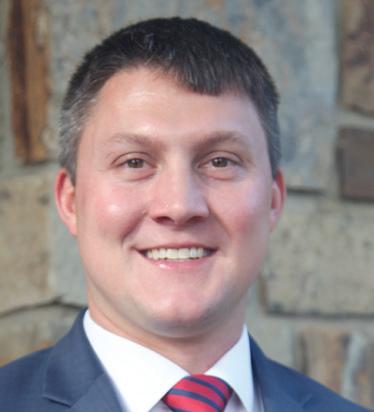
3 minute read
AAC GOVERNMENTAL AFFAIRS Continuing education pays dividends A
rkansas has 75 counties, each different in size, population, number of employees, and revenue. However, they all have similar visions, goals, and job duties — and they operate under the same set of laws. How they achieve their goals and follow the law could vary from county to county.
Benton County, with a population of over 220,000, is completely different from Dallas County, with a population of under 9,000. As in the private sector, one small company may offer the same product as a larger company — but does so in a different way. One way to accommodate for this is “Caucus by County Classification,” a round table discussion we have during continuing education meetings. The goal of this caucus is to get counties with similar dynamics to discuss common challenges and to reach solutions together. I believe the more our counties are alike, the easier it is to improve efficiencies and streamline services together.
Ark. Code Ann. § 14-15-811 and 14-15-1001 set up continuing education boards for county treasurers and collectors. Ark. Code Ann. § 26-60-112 sets up the continuing education boards for county clerks, circuit clerks, and coroners. The law says these boards are responsible for facilitating continuing education meetings for each respective group. This includes paying for meeting space, meals, lodging, mileage, AV equipment, educational materials, and presenter fees and expenses. The AAC works with the Auditor of State’s office to administer continuing education for county clerks, circuit clerks, treasurers, collectors, and coroners. Each county pays dues for the treasurers’ and collectors’ continuing education. The real property transfer tax funds continuing education for coroners, county clerks, and circuit clerks. This tax is levied by the state and collected by the county recorders. This is a tax on each deed, instrument, or writing by which any lands are assigned, transferred, or otherwise conveyed to, or vested in. This tax is commonly referred to as “deed stamps.”
Prices continue to increase, especially in the hospitality industry since the pandemic. These boards need an increase in their funding to keep up with the prices charged at these venues. HB1541 sponsored by Rep. Lane Jean and Sen. Kim Hammer will enhance the funds available for these boards to use. The boards have not received an increase in funding since 2013. If this bill passes, it will provide an additional $7,500 to $8,000 for each continuing education board. With the large number of newly elected officials taking office this year, we anticipate an even more robust continu- ing education program. Our new continuing education coordinator, Michael Roys, has been meeting with these boards to find ways to improve the meetings. They also have been discussing the best ways of accommodating the new elected officials while keeping an eye on their budgets.
Josh Curtis Governmental Affairs Director

Continuing education meetings are the cornerstone for collaborating county officials. One of my first weeks working at the AAC, I was in Texarkana for the collectors’ continuing education meeting, during which multiple items were discussed. One of the leading topics regarded issues with how the state works with the counties. Specifically, how the Department of Finance and Administration (DFA) works with collectors through Department of Motor Vehicle (DMV). This topic arose from a group discussion of multiple collectors who identified questions for DFA. The following week, I set up a meeting with DFA officials, and we talked through the issues, and they answered our questions. This is a good example of officials collaborating to solve problems with the state. The more county officials who come together and work to solve issues for their counties, the better the solutions for the whole state.
Garland County Collector Rebecca Talbert told me at one of her first meetings that her staff was worried and couldn’t find her for a couple of hours. Where was she? She was walking around the venue before dinner talking to two seasoned collectors and learning things that she had never thought she would learn. She is now one of those seasoned collectors. I recently heard her say, “Just because you don’t see a topic on the agenda that you like, doesn’t mean you will not like or learn from these meetings.”
Relationships and an open line of communication make you more accountable to your colleagues. One line of communication that is always open is the list servs — an electronic form of continuing education. The list servs allow any elected official to ask questions of their counterparts in other counties. It is also great to see people highlighting the accomplishments of specific counties or seeing good news from the different offices. Some groups use the email chain very well. I encourage you to use this tool to augment what you learn during continuing education meetings. It will pay huge dividends down the road.










